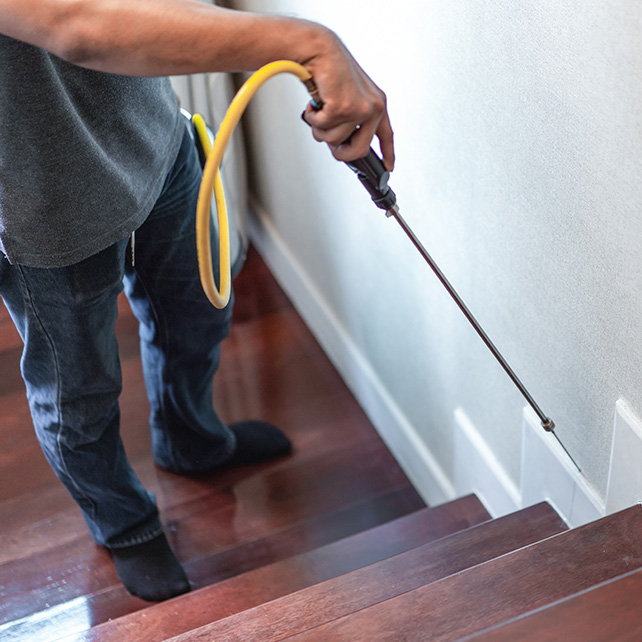
What are earwigs?
Earwigs are scavenging insects that feed on small insects, insect larvae, and plants. We identify these insects by their dark-reddish brown elongated body, long antennae, and their most distinct feature; pincers extending from their hind end. While most earwigs are winged, they are not known for their flying abilities; most species do not fly.
Are earwigs dangerous?
Earwigs are not a danger to people or the structures of our homes. They are nuisance pests that live outside in garden areas that put them in close contact with food sources.
Many people naturally fear earwigs because of the pincers extending from the hind end. Though the pincers may appear menacing, they are not strong enough to cause harm to a person, only the insects they are defending themselves against!
Having earwigs in our homes is annoying; no one wants to be startled by one of these insects scurrying across the floor! Also, it is important to remember that if earwigs find entry points that lead into your home, so will other potentially more dangerous pests.
Why do I have an earwig problem?
The reason earwigs are in our Meridian yards is because they provide them with multiple places to live. The damp ground under mulch, woodpiles, plant pots, trash cans, fallen trees, and rocks is where these pests like to gather.
When the outdoor spaces they live in no longer provide them with an environment they can survive in; earwigs will migrate, searching for damp, dark places to live. Living in our yards puts these insects near our homes, and cracks in the foundation and spaces under exterior doors provide them with an easy way to move indoors.

Why Choose Sawtooth Pest Control?
Let Us Solve Your Pest Problems
-
Quick Response TimesWe offer same-day and emergency services.
-
Experienced ProfessionalsWe have two decades of combined experience solving pest problems.
-
Insured for Your Peace of MindEntrust your pest control needs to licensed, insured professionals.
-
100% Satisfaction GuaranteeWe never leave you unhappy! We guarantee it.
Where will I find earwigs?
Before we talk about where you will find earwigs, let’s first discuss where you won’t find them — in our ears!
There is a myth associated with earwigs that they like to crawl into the ears of sleeping people so they can bore holes in our brains and lay their eggs. There is no truth to this, as earwigs are not attracted to sleeping people and lay their eggs in damp soil.
When earwigs migrate into our homes, they move to damp areas like kitchens, basements, crawl spaces, bathrooms, and laundry rooms. They often gather in areas of clutter, spaces under sinks, under folded clothing, or in the bottom of closets.
How do I get rid of earwigs?
The best way to keep earwigs from taking over your property’s outdoor spaces and keep them out of your Idaho home is to partner with us at Sawtooth Pest Control. We are a family-owned pest control company with over 18 years of combined experience and a dedication to helping families solve their pest problems. Our effective home pest control and commercial pest control services can be completed bimonthly or quarterly and provide the necessary services to eliminate earwigs and stop them from returning.
Speak with one of our professionals today to learn about our pest control options and how we can work together to meet your goal of living in a home free of earwigs and other common household pests.



Happy Customers in Your Neighborhood
Hear From Our Happy Customers
-
“The job they did got rid of my gopher problem--which was significant and arose quickly.”- Lynda R.
-
“Got an appointment for the next day.”- Ryan McGuinness
-
“They also are very knowledgeable and great prices.”- Linda F.
Recent Blog Articles
Want all the latest news or updates? Browse through our blog to read our most recent posts and featured articles.


